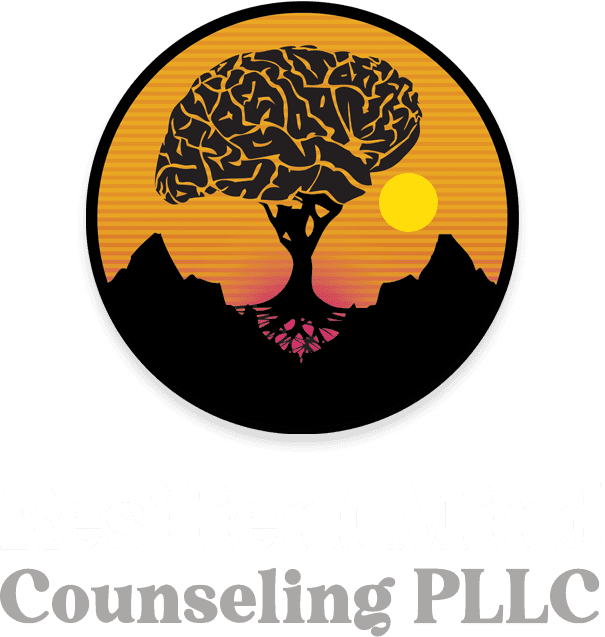In a world where the LGBTQIA+ community often faces unique challenges and systemic discrimination, the importance of mental health support cannot be overstated. Within this context, therapy tailored specifically to the needs of LGBTQIA+ individuals plays a crucial role in healing trauma and fostering resilience. In this blog, we delve into the profound impact of LGBTQIA+ therapy on individuals navigating the complexities of their identities in a society that may not always affirm or understand them. From addressing past traumas rooted in prejudice to empowering individuals to embrace their authentic selves, LGBTQIA+ therapy offers a safe space for healing and growth. By exploring the principles and practices of this specialized form of therapy, we uncover how it serves as a powerful tool in not only coping with adversity but also in thriving despite it. Join us as we explore the transformative journey of healing trauma and building resilience within the LGBTQIA+ community.
Understanding Trauma in LGBTQIA Communities: Navigating Challenges and Building Resilience

Trauma is a complex and deeply personal experience that can affect individuals from all walks of life. However, within the LGBTQIA community, the experience of trauma often intersects with unique challenges stemming from societal discrimination, prejudice, and stigma. Understanding the nuances of trauma within LGBTQIA communities is essential for providing effective support and fostering resilience among its members.
- The Impact of Societal Discrimination: Societal discrimination against LGBTQIA individuals remains a pervasive issue, manifesting in various forms such as homophobia, transphobia, and biphobia. From microaggressions to overt acts of violence, these forms of discrimination can have profound and lasting effects on mental health. Constant exposure to discrimination can lead to feelings of shame, fear, and self-doubt, contributing to the development of trauma symptoms.
- Intersectionality and Identity: It’s crucial to recognize that LGBTQIA individuals possess intersecting identities that shape their experiences of trauma. Factors such as race, gender identity, socioeconomic status, and disability can intersect with sexual orientation or gender identity to create unique vulnerabilities. For example, LGBTQIA people of color may face compounded discrimination, known as “double minority stress,” which can exacerbate the impact of trauma.
- Family Rejection and Acceptance: Family rejection is another significant source of trauma within LGBTQIA communities. Many individuals experience rejection or hostility from family members upon coming out, leading to feelings of isolation and abandonment. This rejection can be particularly devastating for LGBTQIA youth, increasing their risk of homelessness, substance abuse, and mental health disorders. Conversely, family acceptance and support can serve as protective factors against trauma and promote resilience.
- Internalized Shame and Stigma: Internalized shame and stigma are common experiences among LGBTQIA individuals, often internalizing negative societal attitudes towards their identities. This internalized stigma can lead to feelings of worthlessness, self-hatred, and alienation from oneself and others. Over time, this self-directed negativity can contribute to the development of trauma symptoms and hinder the healing process.
- The Importance of Affirmative Therapy: Affirmative therapy approaches are essential for addressing trauma within LGBTQIA communities. These approaches prioritize understanding, validating, and affirming clients’ diverse identities and experiences. Therapists who are knowledgeable about LGBTQIA issues and provide a safe, nonjudgmental space can empower clients to explore and process their trauma effectively. Affirmative therapy also encourages clients to reclaim agency over their narratives and identities, promoting healing and resilience.
Stories of Resilience and Recovery in LGBTQIA Communities

Amidst the challenges and traumas faced by LGBTQIA individuals, there are countless stories of resilience, courage, and triumph. These narratives serve as beacons of hope, inspiring others to persevere in the face of adversity and reclaim their sense of agency and self-worth. By celebrating these triumphs, we honor the strength and resilience of LGBTQIA individuals and acknowledge the power of community support and affirmation in fostering healing and growth.
The Journey of Self-Discovery
For many LGBTQIA individuals, the journey of self-discovery is a profound and transformative experience. Despite facing societal stigma and discrimination, they embark on a path of self-exploration and acceptance, embracing their authentic identities with courage and pride. Through introspection, self-compassion, and the support of affirming communities, they find the strength to live authentically and unapologetically.
Overcoming Adversity
In the face of adversity, LGBTQIA individuals demonstrate remarkable resilience and determination. Whether confronting familial rejection, navigating discriminatory environments, or overcoming internalized shame, they refuse to be defined by their traumas. Instead, they harness their resilience to advocate for change, challenge oppressive systems, and create spaces of belonging and acceptance for themselves and others.
Building Supportive Communities
Community support plays a vital role in the healing and recovery process for LGBTQIA individuals. Through LGBTQIA-affirming spaces, support groups, and social networks, they find solace, validation, and solidarity. These communities serve as sources of empowerment, offering encouragement, guidance, and companionship on their journey towards healing and self-discovery.
Finding Strength in Vulnerability
Vulnerability is often seen as a weakness, but for LGBTQIA individuals, it can be a source of strength and resilience. By embracing their vulnerabilities, they cultivate authenticity, connection, and resilience in the face of adversity. Through acts of vulnerability—such as coming out, seeking therapy, or sharing their stories—they defy societal expectations and reclaim their power and agency.
Embracing Resilience as a Form of Resistance
Resilience is not just about bouncing back from adversity; it’s about resisting oppressive forces and reclaiming one’s humanity and dignity. LGBTQIA individuals demonstrate resilience by refusing to be silenced or erased, by standing up against injustice, and by advocating for their rights and the rights of others. Their resilience is a testament to the power of resistance and the resilience of the human spirit.
Conclusion
Resilient Mind Counseling PLLC in Asheville, North Carolina, stands as a beacon of hope and support for the LGBTQIA community, offering vital services aimed at healing trauma and nurturing resilience. Their commitment to providing specialized therapy underscores the importance of tailored mental health care, acknowledging the unique challenges faced by LGBTQIA individuals. By offering a safe and affirming space, coupled with expert guidance, Resilient Mind Counseling facilitates profound transformations, empowering clients to navigate their journeys with strength and authenticity. Through their dedication and compassion, they not only provide therapeutic intervention but also contribute to the broader movement for LGBTQIA rights and well-being, embodying the essence of resilience and healing.




